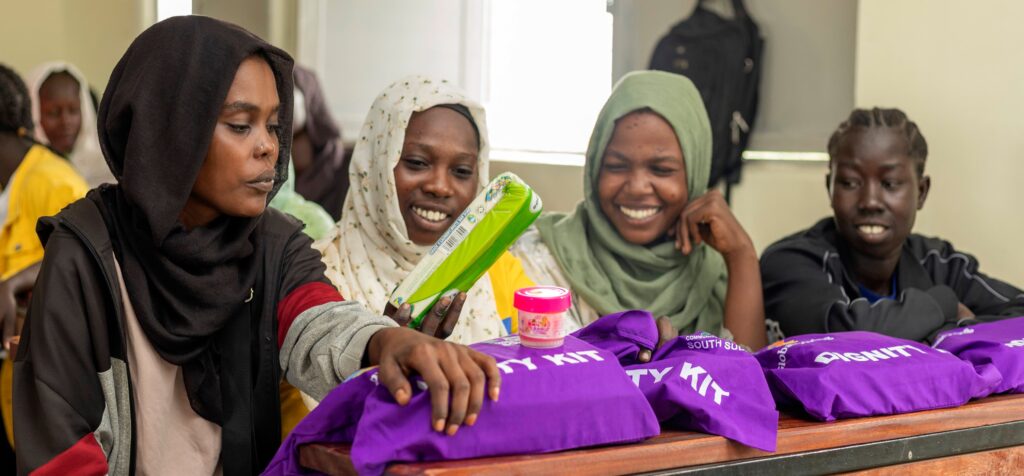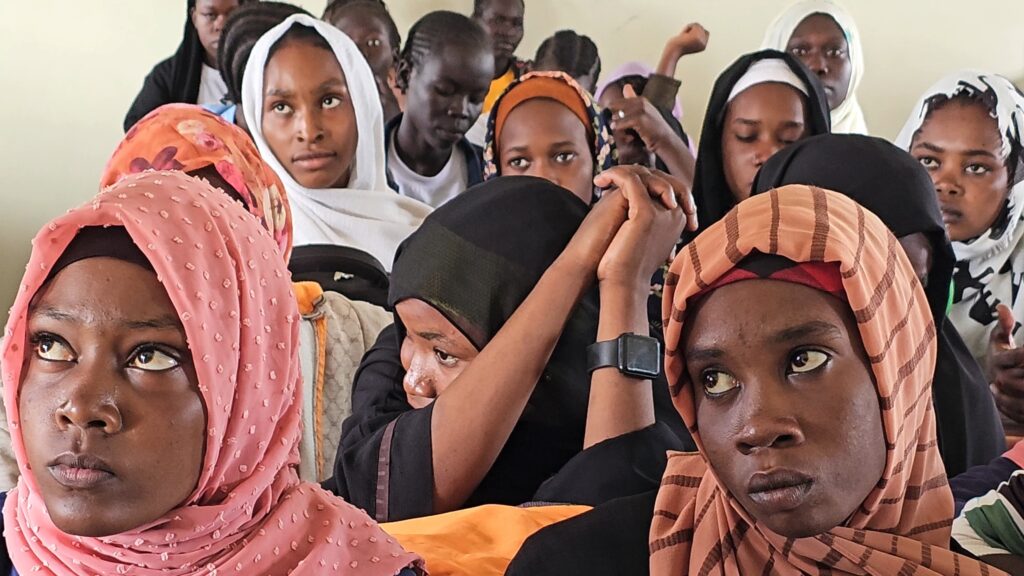At a crowded refugee camp on the outskirts of Juba, South Sudan, every sunrise brings new challenges for thousands who have fled violence and instability from neighboring countries, including Sudan, Uganda, Kenya and Ethiopia. But for many girls living here, one silent battle returns each month — one that threatens their education, dignity and future: menstruation.
In Gorom Refugee Settlement, where displacement has already stripped families of stability and basic resources, adolescent girls face an additional hardship that often goes unnoticed. Without access to affordable sanitary pads, many are forced to stay home from school during their periods, risking long-term educational setbacks, early marriages and even exploitation.
Unlike other health crises often seen in refugee settings, period poverty receives little attention — yet its consequences are deeply personal and painfully immediate for girls trying to balance their education with the harsh realities of camp life.
Radio Tamazuj visited Gorom Secondary School, where more than 130 girls are enrolled, the lack of menstrual hygiene supplies has become a growing concern. Many girls are forced to improvise with unsafe alternatives or simply stay home, missing valuable classroom time.
Seventeen-year-old Naboria Abdalaziz Salleh Idris, a student at the school, remembers the shock of experiencing her first period without any preparation.
“I was at the borehole washing clothes with my sister when I saw blood and thought I was dying,” she recalled. “We ran to our father, who told us to check if there were any pads in my mother’s bag.”
Now older, Naboria still struggles to manage her periods.
“This month, I just wore two pants because I had nothing,” she said. “My mother is sick and cannot work to support me.”
Beyond the shame and discomfort, the situation exposes girls to serious protection risks. Some have reportedly been approached by men offering money or basic supplies in exchange for sexual favors — arrangements that can easily lead to exploitation, early pregnancies and child marriage.
Mushajig Adam Ali, one of the girls who missed a recent distribution of hygiene supplies, expressed her disappointment and pleaded for more assistance.
“We missed out. Pads are very important. We are asking organizations and well-wishers to help us,” she said.
Bocerna Bocara, who fled Sudan in 2023, watched others receive their kits with mixed emotions.
“When I saw others getting the kits, I was happy — but I didn’t receive one. Life here is hard. We struggle to get food, water and pads.”
Another student, Serbin Abas, voiced the same plea:
“Please come back and help us. Pads should not be something a girl has to struggle for.”
“Many girls here skip school during their periods simply because they don’t have pads,” said Kenaro Joseph, executive director of Facilitating Action for Community Empowerment (FACE), a local organization working to fill the gap with dignity kits.
“Refugee girls face the highest risks — early marriage, early pregnancy and dropping out of school,” Kenaro added. “Dignity kits are a simple but powerful tool to protect their future.”
In response to this growing crisis, FACE, with support from GlobalGiving, recently distributed dignity kits to girls at Gorom Secondary School. Each kit included sanitary pads, soap and lotion — essential items that allow girls to manage their periods safely and with dignity.

The organization also distributed more than 100 buckets and bars of soap to vulnerable refugee women, including single mothers and women with disabilities, who struggle even more with basic hygiene needs.
However, the demand far exceeded the supply. Many girls left empty-handed.
“Today, some girls missed out, but we’re not done,” Kenaro said. “The second phase will reach those left behind. Every girl counts.”
The Gorom refugee settlement is home to thousands of displaced men, women and children — including the elderly and people with disabilities — all living in fragile conditions. But for adolescent girls, period poverty has become a hidden emergency with far-reaching consequences for their education, health, safety and self-esteem.
As the world continues to advocate for gender equality and the protection of refugees, the urgent appeal from Gorom’s girls is clear: Period products are not a luxury — they are a basic human right.
According to the World Health Organization, menstrual hygiene is not simply a personal matter — it is a fundamental public health issue and a critical component of human rights, dignity and gender equality. Without access to safe, affordable menstrual products, many girls face unnecessary health risks, social stigma and educational barriers. Global guidelines emphasize that every girl and woman, regardless of where she lives, has the right to manage her menstruation in privacy, safety and dignity.
For many girls in refugee camps, menstruation is cloaked in silence, fear and shame. Without proper supplies, they are forced to stay home from school, and in the worst cases, risk exploitation by men who offer money in exchange for pads.
Seventeen-year-old Naboria’s story reflects the reality so many girls endure.
“This month, my period came, but I don’t have the money to buy pads,” she said quietly. “I just put on two pants and stay like that.”
Her father died when she was just 3 years old, and her mother passed away a few years later. Her older sister took on the responsibility of raising her and brought her to South Sudan — hoping to give her a better future.
Yet even as she faces these hardships, Naboria refuses to give up her dreams.
“Even when I miss school because of my period, I don’t want to give up,” she said. “I still dream of finishing my education and becoming someone one day.”




